

Training News - January 2005
Author: AquaTT
Date: 31 Jan 2005
JANUARY 2005 A free e-mail news service provided by AquaTT on European Education & Training in Aquaculture.
Contents
2. Announcements
4. Student Corner
Message from the AquaTT Secretariat We express sincere thanks to our directors, project partners and colleagues for their hard work with us through 2004 and look forward to another prosperous year in 2005.
We provide a summary below of our past year activities and welcome any feedback or queries you may have. Best Wishes, David, Erin, Caoimhe and Lorraine
In early 2004, AquaTT completed work on its flagship Leonardo da Vinci funded project, PISCES. PISCESTT, a European Forum for Aquaculture Education and Training, is available at www.piscestt.com. It is host to a comprehensive education information database, interactive games for children, dynamic occupational profiles, virtual tours of existing fish farms, web tools for SMEs and major updates in education and training. The site platform has a multilingual facility with the inbuilt Aqualex glossary of aquaculture and marine science terms. The project led to two spin-off initiatives namely, PISCESTT Jobs and Training News. The newsletter, produced on a monthly basis, is received by more than 2500 persons across Europe and further a field. PISCESTT Jobs, a forum for promotion of mobility and training opportunities, will receive update programming in the New Year.
Planning for a second series of Educational Posters is now underway and those interested in discussing sponsorship and/ or contribution options should contact John Coleman at johncoleman@latene.com or Caoimhe Boylan at aquatt@aquatt.ie. The intention is to devise a list of topics, flagged by the industry, and then to work to produce these as comprehensive poster titles through 2005 and 2006. Suggestions may include for example the update and/or reprinting of an existing poster in a different language. Titles currently under discussion include "Farming Cod", "Organic Aquaculture", "Quality Labels", "Depuration Systems", "Mussel Cultivation" and "Life-cycle of the Oyster". Working in Aquaculture; Validation of Experience (WAVE)
Working in Aquaculture; Validation of Experience (WAVE) - Development and introduction of a Work Experience Validation Protocol in European aquaculture. Skill acquisition in professional aquaculture occurs predominantly outside the scope of accredited university/college tertiary degrees or diplomas. Skills are often acquired through formal certification (vocational) or by informal means (experience-based, workplace assessment, lifelong learning). However, there is no accepted Europe-wide system for validating and accrediting these types of training in aquaculture, impeding fair assessment of an individualâs qualifications, as comparison between countries and their systems is difficult if not impossible. WAVE will provide a solution to this challenge by investigating what the individual knows how to do, by way of a check-list of technical competencies, rather than what they are qualified to do, by way of a course or degree title. Outputs
Beneficiaries of the WAVE initiative
How WAVE helps
Example 2: Farm worker
How WAVE helps
For further information on the initiative contact David Murphy at: david@aquatt.ie Aquaculture Student Workshop 2004
2004 saw the successful inaugural launch of the Aquaculture Student Workshop, an AquaTT driven initiative, which took place alongside the Aquaculture International Exhibition in Glasgow, May 19 - 23, 2004. The event drew in 45 participants from 19 different countries, representing a variety of aquaculture-related disciplines of ranging educational levels. A comprehensive evaluation procedure was built into the workshop, which delivered clear output in terms of the needs and requirements of this young generation of aspiring aquaculturists. Thus, collation and design of three learning modules namely, Fish Health, Traceability in Aquaculture and Marketing Methods is underway. Since its inception, the workshop initiative has been built upon and further strengthened, with a new programme planned for 2005 as part of the AQUALABS Series. If you are interested in getting involved as a speaker or in supporting the event, please contact Caoimhe Boylan at aquatt@aquatt.ie e-Aqua Initiative
The survey results and report, together with information on the initial training workshops held in Ireland, can be found in the "Regional Info" section of the project website: http://www.e-aqua.org Back to top
AquaTT Website
- Discussion Forum
Planet Aqua Planet Aqua, an Irish focused initiative, endeavours to inspire and encourage young people to appreciate the environmental and scientific importance of conserving and preserving the planet's water habitats and resources, and in doing so, inspire them to action in their lives to minimise their inidividual ecological footprints. A promotional stand for the initiative was recently devised and launched at the Irish Young Scientist Exhibition. The first meeting of the Planet Aqua high level steering committee will take place in Dublin on February 4, 2005. To find out more about this new, exciting initiative log onto www.planetaqua.ie. AQUALABS
⢠Provision of advanced practical laboratory training for early-stage researchers in the major topical themes of
⢠Provision for the acquisition of practical skills and critical field work experience in themes with specific tie into 6FP interest areas (environment, ethical production, food safety and traceability) ⢠Promote mobility of researchers from an early stage through key linkages and training programmes Building on the strength of the initial Aquaculture Student Workshop, it is proposed that the AQUALAB Student Workshop will take place alongside an industry trade-show or conference, with the following focal objectives: ⢠Examine scientific content relevant to course title; leading to prediction of future needs
Each training course and the concomitant workshop will consist of a 3-phase work programme: 1. Preparatory Phase â centralised internet based system linking all the research participants prior to attendance at the individual events; providing background information and tasks through the online forum
Updates on this initiative will be available through Training News and on the AquaTT website Training Course on the Fundamentals of International Project Management - Karlsruhe, Germany 3 - 4 February 2005 EARMA, the European Association of Research Managers and Administrators, and Forschungszentrum Karlsruhe jointly offer a training course on the Fundamentals of International Project Management. The course will take place in Karlsruhe, Germany, from 3 - 4 February 2005. Data Source: Cordis
Irish Skipper Expo '05 - Galway, Ireland 11 - 12 February 2005 The Irish Skipper marine industry magazine, is pleased to announce the launch of a new fishing industry exhibition. With an emphasis on the fishing operations of vessels under 20m, Irish Skipper Expo 05 , which is co-sponsored by BIM and AIB, will be an all-encompassing display of a full range of products and services available to the mid-range and inshore sectors. From punts to potters/netters, jiggers and longliners and from mussels/scallop dredgers to trawlers, Irish Skipper Expo 05 will have on show a wide variety of service providers and manufacturers covering the areas of vessel design & construction, marine engines and hydraulic systems, deck equipment, electronics, fishing gear, safety equipment and protective clothing. To offer visitors to the exhibition a complete programme of events covering the inshore sector, BIM will be holding a series of workshops and discussions on a wide range of activities currently taking place in the inshore sector. Irish Skipper Expo 05 will be held in the Corrib Great Southern Hotel, less than 2km from Galway City, on February 11 & 12th, 2005. For further information contact:
Back to top
The course is organized by the International Centre for Advanced Mediterranean Agronomic Studies (CIHEAM), through the Mediterranean Agronomic Institute of Zaragoza (IAMZ), with the collaboration of the Food and Agriculture Organization of the United Nations (FAO), through the Fisheries Department, and will take place at the Mediterranean Agronomic Institute of Zaragoza. The course will be given by well-qualified lecturers from international organizations and research centres, administration and private companies from different countries. The course, designed for producers, technical advisors and researchers, will present the current state of knowledge, covering biological and technical aspects of bivalve hatcheries and nurseries from an applied angle. Attention will be paid to the opportunity that exists in nursery facilities in areas where a hatchery may not yet be required. The presentation of specific examples will provide participants with a perspective of the functioning of hatcheries from experimental to commercial scale. For further information visit:
Back to top
Interface Europe is organising a training course entitled 'How to prepare a successful European project and write a competitive proposal. Secrets and logics of FP6', to take place on 21 and 22 February in Saint Etienne, France. The course will offer participants methodological material and useful guidance on how to write a competitive proposal, and is intended for researchers and any organisation that supports research. The course will be held in French. Data Source: Cordis
Back to top
Data Source: Cordis Back to top
- science and society and the Lisbon strategy;
Data Source: Cordis
New Challenges in Pond Aquaculture - Ceské Budìjovice, Czech Republic April 26 â 28, 2005 Organised by:
As a part of the EU project:
In co-operation with:
The workshop sessions have been selected with respect to fish production under conditions of sustainable development of the pond environment. These issues cover a wide range of approaches associated with pond production, such as integrated farming systems, organic farming, biological backgrounds of fishpond production, nature-friendly control mechanisms of pond environment, the role of protected plant and animal species, multifunctional use of ponds etc.
For further information on this event visit: www.vurh.jcu.cz or email: musil_jiri@quick.cz
Two floors of exhibits - Aquaculture and Ornamentals! The conference programme, registration form and the preliminary aquaculture exhibitor list can be viewed on www.was.org. For further detailed information on the event contact Mario Stael at Mario.Stael@Scarlet.be or visit www.was.org Back to top
The symposium will start on September 5, 2005 with registration in the afternoon and guided city tours. All sessions will be held at the historical 'Aula' of the Ghent University. The official opening session & reception will take place on the evening of September 5. The scientific sessions will be held from September 6 through to September 8. A tentative programme has been planned: SESSION I. BROODSTOCK MANAGEMENT (zootechniques, nutrition, egg and larval quality, domestication, sperm quality, genetics, germplasm preservation, genomics and proteomics, transgenics and GMOs, ...) SESSION II. GENERAL LARVAL BIOLOGY, ECOLOGY AND PHYSIOLOGY (ontogeny, developmental biology, behavior..) SESSION III. LIVE FOOD PRODUCTION (culture techniques, genetics,...) SESSION IV. LARVAL NUTRITION AND FEEDING (nutritional requirements, feeding schemes, live food substitutes...) SESSION V. LARVICULTURE ZOOTECHNIQUES (culture systems, environmental requirements, socio-economic aspects,â¦) SESSION VI. MICROBIOLOGY AND HEALTH MANAGEMENT (prebiotics, probiotics, diseases and pathogens, viral and bacterial challenge tests, vaccination, phage therapy, â¦) Speakers as well as presenters of posters are invited to submit a one to two-page mini-paper of their contribution. Detailed instructions will be provided with the notification of paper acceptance. These mini-papers will be reviewed and selected by the Scientific Committee for publication in the "Book of Short Communicationsâ?. Full-length papers and workshop reports will be submitted for publication as symposium proceedings in a peer-reviewed journal. Call for Paper:
Registration:
Special Events in conjunction with Larvi 2005:
On September 9, a Rotifer Workshop for Fish and Shellfish Hatchery Producers will take place (see http://allserv.UGent.be/aquaculture/rotifer_workshop/) For further information, see the symposium website www.UGent.be/larvi or contact the conference secretariat at: Laboratory of Aquaculture & Artemia Reference Center, Ghent University, Rozier 44, B-9000 Gent, Belgium
CORDIS launches information service in support of Marie Curie actions on Human Resources and Mobility In order to develop and enhance human resources in the European Research Area (ERA) , and thereby improve Europe's attractiveness to researchers and overall research performance, the EU supports human resources and mobility activities, named Marie Curie Actions. CORDIS, the Community Research and Development Information Service, has now launched a new information service that assembles information on participation in these schemes.
Data Source: Cordis
Post your Student placement and MSc/ PhD vacancies on WWW.PISCESTTJOBS.COM
Upon registration, companies can post and instantaneously edit job vacancies, including permanent, temporary, MSc/PhD and student placement positions. Companies will only receive CVs of those applicants who are qualified for the position requirements. To ensure privacy and lessen the hassle of unsolicited calls and queries, company/organisation contact details will not be published online. Prospective employees can use the online registration facility to obtain a username and password, post and edit their employee profile, upload a CV and apply online for positions. If you are interested in posting a job vacancy or registering for the service, please contact aquatt@aquatt.ie AquaTT, the European Network for Education and Training, is providing the site as an additional service to compliment their flagship project, PISCES TT, found on the web at www.piscestt.com and host to a comprehensive education database, occupational profiles, virtual tours, a discussion forum, and marine sciences activities for children. The Aquaculture Sector in Turkey - article by Ilhan Yandi, Karadeniz Technical University, Turkey The aquaculture sector in Turkey has enjoyed rapid development during the last decade with full public support, cheap labor and lack of strict environmental regulations. Production has reached over 60,000 tons/year from around one thousand farms producing rainbow trout, seabass, seabream, tuna and common carp. Its share in total fishery production is around 10-12% in volume and around 25% in value terms. Currently, the country has a significant know-how and research capacity, although it is not well organised. R&D activities are mainly performed by Fisheries Faculties, Research Institutes and Production Development Centres of the Ministry of Agriculture and Rural Affairs. There are 13 fisheries faculties and 5 departments at agriculture faculties providing undergraduate and graduate education in fisheries (including aquaculture) and aquatic sciences. Each year more than 300 students graduate from these faculties, but the numbers employed by the sector are very limited, mainly in marine aquaculture. Aquaculture producers have recently started organising themselves and formed three associations, one fisheries foundation and one fish promotion group. Lack of natural resource management, the system, low species and product diversity, insufficient legal and institutional structures, quality and utilisation of manpower, organisation of research and development activities, dissemination of research results and partnerships between stakeholders, producer associations and public institutions seems to be the major constraints for development of environmental sustainability, food safety and industry competitiveness. Turkey is a large country with a size of about 779,452 square kilometers and a relatively young population approaching 70 million, which is increasing at around 2 percent a year. The country has rich and diverse water sources ranging from fresh to brackish and marine: 8,333km of coastline, 151,080 square kilometers economic coastal zone, 177,714 km total river length, around 900,000 ha natural lakes, 500,000 ha of dam reservoirs. Despite these large resources, Turkish fisheries has stagnated at annual production of around 600,000 tons and depends mainly on small-scale and largely small pelagic. Freshwater fisheries production has also leveled off at around 40,000-50,000 tons. Similar to global trends, demand for fish is increasing in Turkey. As the landings of fish from capture fisheries fail to meet the demand, the role of aquaculture is increasing and it has become an important and viable sector with an average annual increment of over 30% in the last 10 years. Currently the government of Turkey is committed to ensuring the responsible and sustainable development of the aquaculture industry. Recent efforts on relationships with international organisations, legal arrangements such as environmental impact assessment (EIA), direct income support for fish farms are clear expression of this commitment. The major objective is to support the sustainable development of the aquaculture sector, with a focus on increasing production and diversity, enhancing public confidence in the sector and improving the industryâs competitiveness. If you would like to write an article for the student corner please contact Caoimhe at aquatt@aquatt.ie
The main target audience for this newsletter is teachers, trainers and students in the aquaculture area but will also be of interest to policy makers, companies and associations. AquaTT welcomes any feedback regarding content, presentation and user-friendliness of the newsletter. Please forward this mail to any colleagues that may be interested. Please submit any relevant information for dissemination in the newsletter. DISCLAIMER: AquaTT provides this newsletter as a free service to interested parties. Most of the information is provided by AquaTT. Where it is not, the source of the news is provided in the text of the news brief or else AquaTT attributes the news to the coordinating body as the "Data Source Provider". In no way does this newsletter, by promoting events not coordinated by AquaTT, intend to wrongly or inappropriately claim projects, news, etc. as its own nor is it responsible for incorrect information provided from other sources. "Training News" is a promotional tool and forum for both AquaTT and other organisations. |




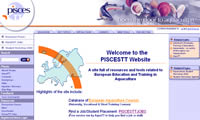
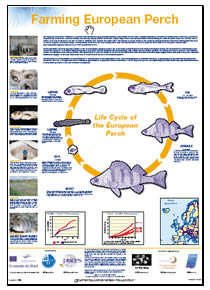 titles in aquaculture. This first series consists of life-cycle and special interest topic titles posing broad appeal for students from second level upwards, and for those wishing to gain an understanding of the stages and technical methods currently being used within the aquaculture sector. The life-cycle posters graphically depict the various stages of the wild life cycle of the species through text, graphs, distribution maps and cyclically linked photographs. Each stage of the life cycle is linked to its stage in commercial aquaculture. PISCES partner, La Tene Maps, with pledged support from individuals, development agencies, academic institutions and companies, was responsible for the ultimate design, compilation and production of the series. The funded titles of 2004, currently available in English but with provision for translation are âFarming Atlantic Salmonâ?, âFarming Turbotâ?, âFarming European Perchâ?, âLife-cycle of Seahorseâ?, âLife-cycle of Sea Bass & Sea Breamâ?, âWaste Management in Aquacultureâ?, âLocal Area Management Systems in Aquacultureâ?, âTraceabilityâ? and âRecirculation Systems in Aquacultureâ?. The posters can be freely viewed and downloaded from the AquaTT website
titles in aquaculture. This first series consists of life-cycle and special interest topic titles posing broad appeal for students from second level upwards, and for those wishing to gain an understanding of the stages and technical methods currently being used within the aquaculture sector. The life-cycle posters graphically depict the various stages of the wild life cycle of the species through text, graphs, distribution maps and cyclically linked photographs. Each stage of the life cycle is linked to its stage in commercial aquaculture. PISCES partner, La Tene Maps, with pledged support from individuals, development agencies, academic institutions and companies, was responsible for the ultimate design, compilation and production of the series. The funded titles of 2004, currently available in English but with provision for translation are âFarming Atlantic Salmonâ?, âFarming Turbotâ?, âFarming European Perchâ?, âLife-cycle of Seahorseâ?, âLife-cycle of Sea Bass & Sea Breamâ?, âWaste Management in Aquacultureâ?, âLocal Area Management Systems in Aquacultureâ?, âTraceabilityâ? and âRecirculation Systems in Aquacultureâ?. The posters can be freely viewed and downloaded from the AquaTT website 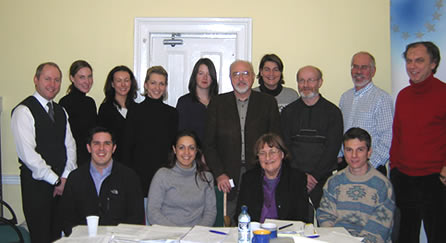


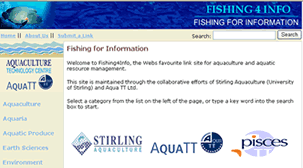
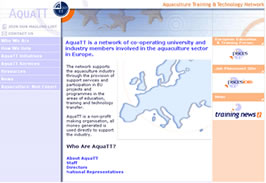
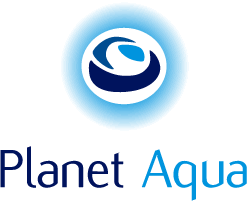
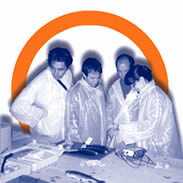
 PISCES TT Jobs, an exciting and valuable free online service provided by AquaTT UETP Ltd. to employers and potential employees in aquaculture and related science sectors. Using a secure and innovative site format, employers and job searchers can post job vacancies and CVs, respectively, thus facilitating human resource development in the industry.
PISCES TT Jobs, an exciting and valuable free online service provided by AquaTT UETP Ltd. to employers and potential employees in aquaculture and related science sectors. Using a secure and innovative site format, employers and job searchers can post job vacancies and CVs, respectively, thus facilitating human resource development in the industry. 
 AquaTT through its extensive network has realised that essential information on upcoming changes is not being effectively disseminated to all parties. Thus, AquaTT is producing this free news service "TRAINING NEWS" specifically for the Aquaculture industry. The newsletter is intended to keep you informed of developments in Education & Training and related areas. Support material will be available on the new European Education Forum website
AquaTT through its extensive network has realised that essential information on upcoming changes is not being effectively disseminated to all parties. Thus, AquaTT is producing this free news service "TRAINING NEWS" specifically for the Aquaculture industry. The newsletter is intended to keep you informed of developments in Education & Training and related areas. Support material will be available on the new European Education Forum website